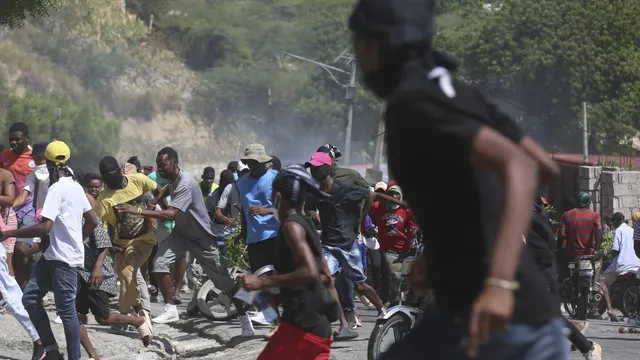
US considers UN peacekeeping in Haiti to combat gang violence
2024-09-04 18:12- The U.S. is exploring a U.N. peacekeeping operation to support a Kenya-led mission in Haiti aimed at combating gang violence.
- Haiti has experienced a surge in gang activity following the assassination of former President Jovenel Moïse in July 2021, leading to significant political instability.
- The situation remains dire, with gangs controlling much of Port-au-Prince, necessitating urgent international intervention and support.
Express your sentiment!
Insights
The U.S. is considering a U.N. peacekeeping operation in Haiti to support a Kenya-led mission aimed at reducing gang violence. This initiative comes as the U.N. Security Council would need to approve such a mission, but experts express skepticism about its likelihood due to past negative experiences with U.N. troops in Haiti, including cholera outbreaks and sexual abuse cases. Currently, the U.N. mission relies on voluntary contributions, with limited funding received so far, raising concerns about its sustainability. Haiti has been grappling with escalating gang violence, particularly after the assassination of former President Jovenel Moïse in July 2021, which created a political vacuum. Gangs have launched coordinated attacks on government infrastructure, including police stations and the international airport, exacerbating the crisis. Despite the arrival of Kenyan forces, local residents report no significant decrease in violence, highlighting the urgent need for more international support. U.S. officials, including Secretary of State Antony Blinken, are engaging with Haitian leaders to push for political stability and the establishment of a provisional electoral council to facilitate long-overdue elections. The last presidential election occurred in November 2016, and the ongoing violence has stalled any electoral processes since then. Additionally, Haiti's transitional council is facing a corruption scandal, with allegations against members demanding bribes. The situation remains precarious, with gangs controlling a significant portion of Port-au-Prince, and the U.S. hopes for improved relations with the Dominican Republic, which has implemented strict measures against Haitian migrants amid the crisis.
Contexts
The U.S. is considering deploying UN peacekeeping forces to Haiti in response to escalating gang violence that has destabilized the country. This decision comes amid a broader context of regional instability, including rising tensions in neighboring Venezuela, where a U.S. service member was recently detained by the Venezuelan intelligence agency SEBIN. The service member was not on official travel, and the circumstances surrounding his visit remain unclear. The U.S. State Department has issued warnings against travel to Venezuela due to the high risk of wrongful detention of American nationals, highlighting the precarious security situation in the region. The potential deployment of peacekeeping forces to Haiti aims to address the urgent need for stability and security in a country grappling with rampant gang activity and violence. The situation in Haiti is critical, with gangs exerting control over significant areas, leading to humanitarian crises and displacement of citizens. The U.S. government's consideration of UN peacekeeping reflects a commitment to international cooperation in addressing such crises, particularly in the Caribbean region. As the U.S. navigates these complex geopolitical challenges, the outcomes of these considerations will be closely monitored, both for their immediate impact on Haiti and for their implications for U.S. relations in the region.